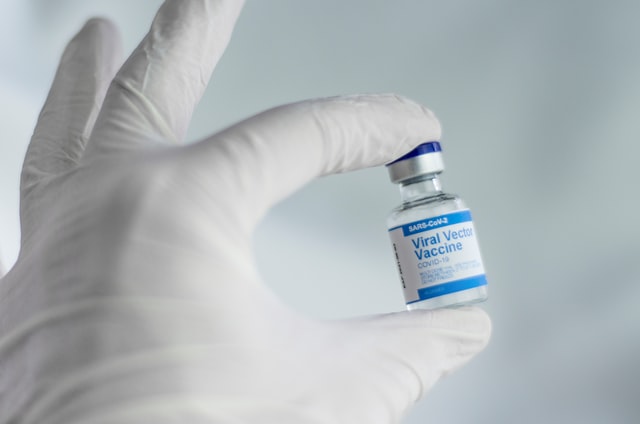Photo by Spencer Davis on Unsplash
What we know about events and developments around the AstraZeneca COVID-19 vaccine.
On Friday, 16 April 2021, Namibia received its first doses of COVID-19 vaccines through the COVAX Facility. The consignment of vaccines consisted of 24,000 doses of the Oxford-AstraZeneca vaccine. However, the vaccine has been plagued by safety concerns since March 2021.
Following are some quick facts about the vaccine:
- The Oxford-AstraZeneca vaccine was created by scientists at the University of Oxford in the UK and Anglo-Swedish pharmaceutical firm AstraZeneca AB in 2020;
- The vaccines is a viral vector vaccine, which uses “a safe virus that cannot cause disease but serves as a platform to produce coronavirus proteins to generate an immune response”;
- The vaccine has a reported efficacy of 76%;
- The vaccine is distributed in Europe under the name Vaxzevria, and produced and distributed by the Serum Institute of India under the name Covishield.
- The vaccine is distributed worldwide through the COVAX Facility.
Following is a chronology of the notable events and developments around the AstraZeneca vaccine since early 2021:
- 29 January 2021 – The vaccine is granted “Conditional Marketing Authorisation” by the European Medicines Agency (EMA), meaning it could be administered across the European Union (EU);
- 15 February 2021 – The vaccine is granted Emergency Use Listing (EUL) by the World Health Organisation (WHO), meaning it could be distributed through the COVAX Facility and administered by WHO member states;
- February 2021 – South Africa stops the rollout of the vaccine following reports that it is ineffective against the B.1.351 variant first identified in the country;
- 11 March 2021 – Norway, Denmark and Iceland suspend the rollout of the AstraZeneca vaccine after a number of vaccinated people are hospitalised with a blood-clotting condition and some die as a consequence of the condition and related complications. The move is followed by a handful of other EU states suspending use of the vaccine;
- 16 March 2021 – Following a study, South African scientists announce that the vaccine is ineffective against the B.1.351 variant first identified in the country;
- 18 March 2021 – The European Medicines Agency (EMA) states that it continues to support the use of the vaccine;
- 20 March 2021 – Namibia receives a donation of 30,000 doses of the Covishield vaccine from the High Commission of India in Namibia;
- 26 March 2021 – the Norwegian Institute of Public Health extends the suspension of the AstraZeneca vaccine rollout until 15 April 2021;
- 7 April 2021 – The European Medicines Agency (EMA) announces a possible link between the vaccine and a rare blood-clotting condition seen in some people who had been vaccinated with it;
- The EMA statement reads: “EMA’s safety committee (PRAC) has concluded today that unusual blood clots with low blood platelets should be listed as very rare side effects of Vaxzevria (formerly COVID-19 Vaccine AstraZeneca).” The EMA continues to reiterate its support for the use of the vaccine.
- 14 April 2021 – Danish health authorities announce that the vaccine would no longer be administered in Denmark;
- 16 April 2021 – Namibia receives a second batch of 24,000 doses of the AstraZeneca vaccine through the COVAX Facility;
- 16 April 2021 – The WHO Global Advisory Committee on Vaccine Safety (GACVS) issues a statement that reads: “Based on latest available data, the risk of TTS [Thrombosis with Thrombocytopenia Syndrome] with Vaxzevria and Covishield vaccines appears to be very low. Data from the UK suggest the risk is approximately four cases per million adults (1 case per 250 000) who receive the vaccine, while the rate is estimated to be approximately 1 per 100 000 in the European Union (EU).”
Despite the growing concerns around a rare blood-clotting disorder and associated complications, both the WHO and the EMA insist that the AstraZeneca vaccine is safe and effective as a COVID-19 vaccine.
For more information on the potential link between the vaccine and a rare brain blood-clotting disorder, read this informative article that appeared in Nature magazine on 13 April 2021.

